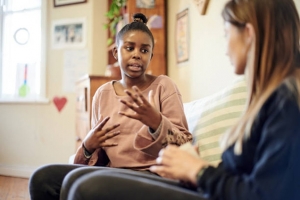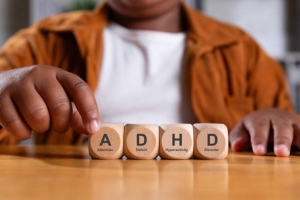Test Owner
Vital support services for unpaid carers are under serious threat due to increased employer National Insurance contributions, according to the Carers Trust. The charity warns that its network of over 130 local carer organisations now faces an added financial burden of £3.3 million, which, alongside higher wage costs, brings the total impact to £7.5 million. As a result, many centres may be forced to cut services, reduce staff, or help fewer carers.
The rise comes into effect during a time of growing financial pressure on unpaid carers, who are also facing cuts to benefits. Local carer services offer essential help for the UK’s six million unpaid carers and around one million young carers, including practical support, information, breaks from caring and emergency grants. Many of these families already struggle financially, with two-thirds of carers needing to reduce or leave work due to their responsibilities.
Almost all of the affected organisations (93%) say the additional costs threaten their ability to continue operating, with 30% expecting to cut core services, 40% likely to reduce staffing, and 28% anticipating a drop in the number of carers they can support.
Kirsty McHugh, Chief Executive of Carers Trust, called for urgent government action, warning that without proper funding, many carers could lose the only support they have.
Experts have raised concerns over the number of children in Scotland facing long, unreported waits for autism and ADHD assessments. Despite recent progress in mental health services – with Child and Adolescent Mental Health Services (CAMHS) meeting its 18-week treatment target for the first time – thousands remain on "hidden" waiting lists for neurodevelopmental assessments.
Figures obtained through Freedom of Information requests reveal that thousands of young people across health boards, including over 8,500 in Lanarkshire and more than 7,500 in Greater Glasgow and Clyde, are waiting for their first appointment. However, the data is not published consistently, and campaigners are urging the Scottish government to be more transparent and to ring-fence funding for neurodevelopmental support.
The Royal College of Psychiatrists in Scotland warns that children with conditions like autism and ADHD often wait longer due to prioritisation of those with immediate mental health risks. Delays in assessment can have lasting impacts on education and wellbeing, with many developing mental health issues as a result of unsupported neurodivergence.
While funding for mental health services has increased, demand continues to outpace capacity. Organisations such as the Salvesen Mindroom Centre have seen referrals soar, highlighting the need for better data, clearer pathways, and more staff to meet rising needs.
A Norfolk-based charity supporting young people with mental health challenges has welcomed fresh government investment aimed at improving access to early intervention services. Youth organisation MAP runs early support hubs in King’s Lynn, Great Yarmouth, and Norwich, offering immediate help while young people await NHS treatment.
The Norfolk and Suffolk NHS Foundation Trust has reported a significant drop - over 50% - in waiting list numbers since April 2022. However, many young people still face lengthy waits. Mel, a 15-year-old from King’s Lynn, shared how she waited four years for a referral for PTSD treatment. After her GP declined to refer her to CAMHS, MAP stepped in and helped her secure a place on the NHS waiting list, offering ongoing support throughout.
“I waited years for someone to listen,” Mel said. “Without MAP, I wouldn’t have received the help I needed. We need to address issues early - prevention is far better than cure.” She also pointed to academic pressure as a key factor behind the rise in mental health struggles among her peers.
Labour has confirmed plans to expand early support hubs, which were originally piloted by the previous Conservative government. MAP CEO Dan Mobbs welcomed the funding, highlighting the growing mental health crisis, with one in five young people now affected. Senior mental health worker Dan Klyn stressed that MAP supports anyone in need - regardless of how severe their condition may seem.
As part of Autism Acceptance Month, The Big Cat Sanctuary in Smarden, Kent, has been honoured with an Autism-Friendly Award from national support provider Dimensions. The accolade celebrates the sanctuary’s dedication to creating a supportive, inclusive environment for autistic visitors and staff alike.
Over 30 members of the team at the sanctuary recently completed specialist training delivered by Dimensions, which focused on understanding autism, improving communication, and making meaningful adjustments to the environment. The training has been developed over 15 years and empowers organisations to make their spaces more accessible and less overwhelming for autistic individuals.
Sarah Walters, Campaigns Manager at Dimensions, said: “We’re proud to recognise The Big Cat Sanctuary’s efforts in making their site more autism inclusive. It’s vital that public spaces become more accessible, and this award reflects a real commitment to that goal. We hope other organisations follow their lead in making their services more inclusive.”
To put their learning into practice, the sanctuary will host its first Sensory Inclusive Open Day this summer. The event will include lower noise levels, tailored talks, and hands-on activities designed with neurodiverse guests in mind. British Sign Language interpreters will also be present, ensuring deaf visitors can fully engage and enjoy the experience in a welcoming and comfortable setting.
A new report has revealed that children in Bradford who moved from primary to secondary school during the Covid lockdown have faced significant challenges, with many struggling to adjust and engage in their new school environments. The disruption of learning routines during lockdown, combined with a lack of in-person transition support, has had a lasting impact on academic performance and attendance rates.
Bradford Council’s children’s services highlighted concerns at a recent scrutiny committee meeting, pointing to a sharp rise in absences, suspensions and exclusions among secondary pupils. The report noted that while primary-level outcomes are showing improvement, secondary schools - most of which are academies - are lagging behind. Officials cited the absence of structured transition experiences during the pandemic as a key factor behind this performance gap.
The council acknowledged that attendance issues have become increasingly difficult to tackle, particularly among vulnerable families. Some parents now view school attendance as less essential, citing factors such as mental health concerns and the affordability of holidays during term time as reasons for keeping children at home.
To support pupils during this period, the council distributed the book Boy 87 by Ele Fountain to all Year 6 pupils in 2020. The novel was used as a shared point of discussion in both primary and secondary schools, with officials describing it as a valuable tool in helping children cope with the abrupt transition.
The government has pledged a £740 million investment to increase support for children with special educational needs and disabilities (SEND), creating 10,000 new school places across England. This funding will enable the expansion of specialist facilities in mainstream schools, adapt current provisions, and establish new places in dedicated special schools, helping more children access education closer to home.
Current figures reveal a significant shortfall in SEND provision, with a gap of 8,000 places in state secondary special schools and fewer than 10% of mainstream schools offering specialist SEND units. The rising demand is evident, with children holding education, health and care plans (EHCPs) in independent special schools increasing from 7,000 in 2010 to 26,000 in 2024.
Education Secretary Bridget Phillipson described the move as a vital part of the government’s wider Plan for Change, aiming to ensure every child has a suitable, high-quality school place nearby. She said the investment addresses longstanding gaps in SEND provision and gives families more local, inclusive options.
The new guidance allows local authorities to direct funding towards creating SEND places in mainstream schools. Amanda Allard of the Council for Disabled Children welcomed the plans, urging local areas to build on existing best practices to create inclusive environments where children with SEND can thrive, make friends, and feel part of their communities.
New research has revealed a sharp rise in the number of prescriptions for ADHD medication in England, with figures showing an average annual increase of 18% since the onset of the Covid-19 pandemic. Published in BMJ Mental Health, the study highlights significant growth in the use of all five UK-licensed ADHD treatments, particularly amid limited access to non-medical therapies.
The most prescribed drug remained methylphenidate, but lisdexamfetamine saw the largest surge - jumping by 55% from 2019 to 2024. Researchers examined data from the English Prescribing Dataset, comparing national, regional, and Integrated Care Board (ICB) levels, and found that prescriptions had risen in every region, although with notable variation.
London experienced the highest annual increase at 28%, while the Northeast and Yorkshire saw the lowest at 13%. Birmingham and Solihull ICB reported a nearly 51.5% rise, in contrast to Norfolk and Waveney ICB, where the increase was just over 4.5%. These trends also correlated with factors such as deprivation, ethnicity, and age.
Experts suggest the pandemic’s disruption to daily life and mental wellbeing likely contributed to the spike in prescriptions. The study’s authors call for urgent action to address inequalities in ADHD diagnosis and treatment, urging tailored regional support and greater access to alternative care options.
A dedicated mental health helpline supporting those in the farming and rural community has marked its first year in operation, with reports of a significant positive impact. The service, run by the charity YANA – short for You Are Not Alone – offers crucial emotional support to individuals across East Anglia working in agriculture and related rural industries.
Launched as a full-time service a year ago, the helpline operates Monday to Friday and provides a confidential space for callers to talk openly about their mental health. Helpline manager Claire Atherton explained that the charity focuses on being a listening ear for people who often feel isolated in their work.
The roots of YANA go back 16 years, when conversations around mental health began to emerge among volunteers in the agricultural sector. It officially became an independent charity in 2020, evolving from a voicemail system into a fully staffed helpline.
Ms Atherton highlighted the unique challenges of rural life, where individuals often work alone and have few opportunities to talk about how they feel. "Having someone to listen can make all the difference," she said. "And now, more people are hearing about the service through word of mouth."
The increasing number of autism diagnoses has drawn widespread attention, with some questioning the rapid rise. While concerns have been raised about the growing prevalence, experts at Northeastern University suggest that heightened awareness and earlier diagnoses are key factors behind the trend. Autism, only officially recognised as a disability in 1990, remains an evolving field of study. Improved understanding and changes in diagnostic criteria, including the recognition of autism as a spectrum disorder, have contributed to the increase in cases.
Greater public awareness and more sophisticated screening methods have led to earlier and more accurate identification of autism in children. Historically, research was largely centred on middle-class white populations, but growing recognition that autism affects individuals from all ethnic and cultural backgrounds has broadened diagnostic scope. Additionally, clinicians now acknowledge that conditions such as Down syndrome and ADHD can co-exist with autism, further increasing reported cases. While boys remain more frequently diagnosed, awareness has improved for girls, who often present different symptoms.
Alongside better identification, various genetic and environmental factors also play a role. Researchers highlight inherited genetic mutations, increasing parental age, and improved survival rates for premature babies as possible contributors. However, autism lacks a single biological marker, relying instead on clinical assessments and behavioural observations. This makes standardised screening tools essential in ensuring early intervention, which can significantly improve long-term outcomes.
Since 2007, the American Academy of Paediatrics has recommended universal autism screening at 18 and 24 months to facilitate early support. Research indicates that states with more consistent screening approaches identify more cases, while others may overlook children needing support.
New research by Ambitious about Autism has revealed that parents of autistic children are being driven into financial hardship and forced to leave their jobs due to inadequate educational support. The study, which surveyed over 1,300 autistic individuals and parents, examined the impact of missed education - whether through exclusion, suspension, or reduced timetables. It found that one in ten parents had lost their jobs as a result, while more than half had to take extended time off work to care for their children.
The findings highlight the widespread disruption caused by lost learning, with 90% of parents reporting a negative effect on their personal and professional lives. Additionally, nearly half said that the challenges extended beyond their autistic child, also impacting siblings. Among autistic young people, 71% had experienced disruptions in their education, with 60% stating it had harmed both their academic progress and mental health. The vast majority of respondents believed that better autism training for teachers would significantly improve support in schools.
Jolanta Lasota, Chief Executive of Ambitious about Autism, warned that parents are facing severe financial and emotional distress, with some relying on foodbanks or struggling to pay their bills. Many have had to cut their working hours or give up their careers entirely. She described the issue of lost learning among autistic children in mainstream education as a “hidden crisis” and called for urgent improvements to ensure autistic pupils receive meaningful support.
Lasota stressed the need for systemic change, urging schools to be better equipped to support autistic students beyond simply including them in the classroom. She emphasised that with the right training and understanding, schools could make a real difference in the lives of autistic pupils, ensuring they are actively engaged in education and able to succeed.












